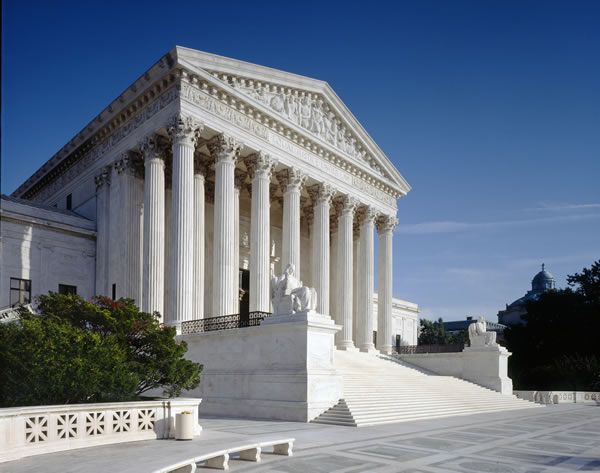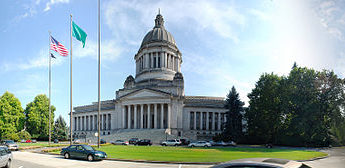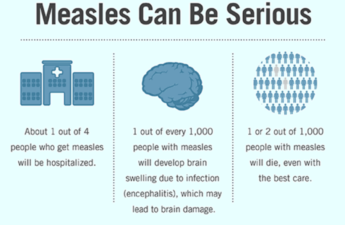
By Julie Rovner, Kaiser Health News
The Supreme Court on Thursday blocked a key Biden administration covid-19 initiative — putting a stop, for now, to a rule requiring businesses with more than 100 workers to either mandate that employees be vaccinated against covid or wear masks and undergo weekly testing. The rule, which covers an estimated 80 million workers, took effect earlier this week.
At the same time, however, the justices said that a separate rule requiring covid vaccines for an estimated 10 million health workers at facilities that receive funding from Medicare and Medicaid could go forward. The justices removed a temporary halt imposed by a lower court late last year that affected health care facilities in half the states.
In emergency oral arguments held Jan. 7, a majority of the justices seemed dubious that the federal government, through the Occupational Safety and Health Administration, had broad enough authority to require vaccines or tests for the bulk of the nation’s private workforce, particularly for a threat that is not job-specific.
Said the unsigned majority opinion: “A vaccine mandate is strikingly unlike the workplace regulations that OSHA has typically imposed. A vaccination, after all, ‘cannot be undone at the end of the workday.’”
Three of the court’s conservatives — Justices Neil Gorsuch, Clarence Thomas and Samuel Alito — concurred with the decision in a signed opinion that laid out their concerns about OSHA’s authority. “The agency claims the power to force 84 million Americans to receive a vaccine or undergo regular testing,” they wrote. “By any measure, that is a claim of power to resolve a question of vast national significance. Yet Congress has nowhere clearly assigned so much power to OSHA.”
Liberals on the court — where anti-covid policies are even stricter than those up for debate in the case — were outraged at the majority decision, arguing that just because a threat exists outside the workplace as well as inside, that should not prevent the federal safety agency from regulating it.
Justices Stephen Breyer, Elena Kagan and Sonia Sotomayor wrote in a signed opinion, “When we are wise, we know not to displace the judgments of experts, acting within the sphere Congress marked out and under Presidential control, to deal with emergency conditions. Today, we are not wise.”
In the second pair of cases also argued Jan. 7, the justices weighed whether the federal government could place conditions on payments for Medicare and Medicaid to help ensure the safety of the patients whose care is being underwritten.
The health worker rule, said the opinion, also unsigned, “fits neatly within the language of the statute. After all, ensuring that providers take steps to avoid transmitting a dangerous virus to their patients is consistent with the fundamental principle of the medical profession: first, do no harm.”
Four conservative justices — Thomas, Alito, Gorsuch and Amy Coney Barrett — dissented in the health worker case, arguing in a signed opinion that “to the extent the rule has any connection to the management of Medicare, and Medicaid, it is at most a ‘tangential’ one.”
President Joe Biden lamented the court’s decision on the rule for large workplaces. “As a result of the Court’s decision, it is now up to States and individual employers to determine whether to make their workplaces as safe as possible for employees, and whether their businesses will be safe for consumers during this pandemic by requiring employees to take the simple and effective step of getting vaccinated,” he said in a statement.
The OSHA rules are opposed by many business groups, led by the small business advocacy organization the National Federation of Independent Business. It argued that allowing the rules to take effect would leave businesses “irreparably harmed,” both by the costs of compliance and the possibility that workers would quit rather than accept the vaccine.
The challenge to the Medicare and Medicaid rules, by contrast, came mostly from states, rather than the hospitals, nursing homes and other facilities most directly affected. State officials charge that the rules would jeopardize the ability of health care providers, particularly those in rural areas, to retain enough staffers to care for patients.
The cases on the OSHA rule are National Federation of Independent Business v. Department of Labor and Ohio v. Department of Labor. The cases involving the CMS rule are Biden v. Missouri and Becerra v. Louisiana.
KHN (Kaiser Health News) is a national newsroom that produces in-depth journalism about health issues. Together with Policy Analysis and Polling, KHN is one of the three major operating programs at KFF (Kaiser Family Foundation). KFF is an endowed nonprofit organization providing information on health issues to the nation.


